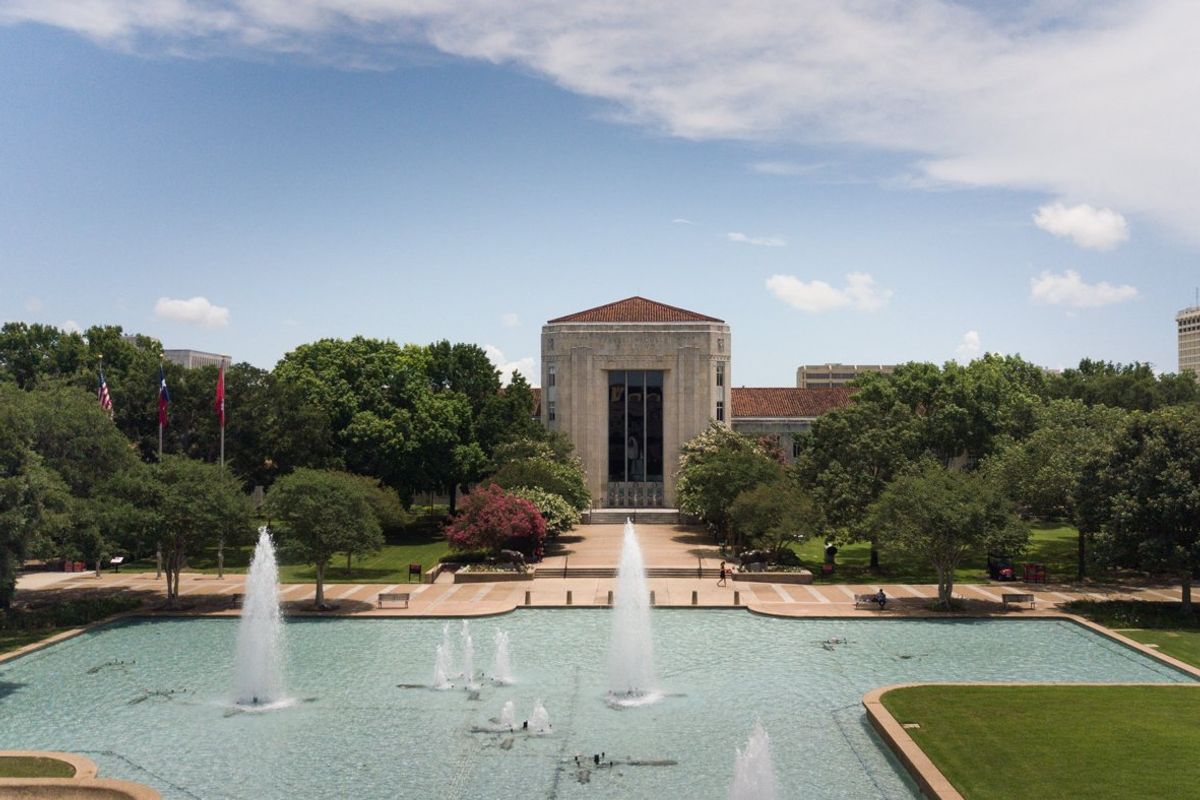
The University of Houston was recently awarded its largest grant in history—this time, from the U.S. Department of Defense.
The $63.5 million contract aims to support UH in developing analytical modeling and simulation platforms that help the U.S. Army make timely and effective decisions, according to a release from UH.
Craig Glennie, professor of civil and environmental engineering and director of engineering defense research initiatives at the UH Cullen College of Engineering, who is leading the project, says the team's work will focus on creating tools for the time period before conflict begins.
“We are not looking at what happens once bullets start flying. We are looking at what happens during the competition and crisis phases, the buildup and the posturing and the projection of forces before you actually get to the point of armed conflict,” he says in a statement. “The Army needs tools to understand how they can effectively position themselves and project their force towards the adversary in such a manner that they can avoid armed conflict, or if that is not possible, be prepared for the onset of armed conflict.”
The team, which also includes members from the University of Massachusetts Amherst, New Mexico State University and other organizations, will work closely with the U.S. Army Combat Capabilities Development Command Analysis Center, known as DAC. They've been commissioned to help build realistic modeling, analysis and simulation tools that the Army can use in the "future battlefield."
DAC has named several high priority issues for the team including quantum technology, artificial intelligence, and machine learning.
“For example, we will look at the electromagnetic spectrum, at owning the airspace, and projecting that we have the radio frequency technology that is capable of jamming a neighbor’s signals," Glennie adds.
UH president Renu Khator says the university is honored to revive the contract.
“We understand the significance of this project in enhancing the Army’s decision-making capabilities, and we are proud to contribute to our nation’s security and strategic competitiveness," she said in a statement. "We look forward to the remarkable contributions that will emerge from this collaboration, strengthening the University of Houston’s commitment to driving innovation that matters.”
UH has inked a number of grants and contracts in recent months that are pushing innovative initiatives forward at the university.
Last month, UH received a $100,000 grant from the Baker Hughes Foundation to go toward workforce development programs, and environmental justice research at its Energy Transition Institute. The ETI was launched last year through a $10 million grant from Shell USA Inc. and Shell Global Solutions (US) Inc.
And earlier this month, Houston-based The Welch Foundation awarded its inaugural $5 million Catalyst for Discovery Program Grant to a new initiative led by Jeffrey Rimer, UH's Abraham E. Dukler Professor of Chemical Engineering. The grant launched the Welch Center for Advanced Bioactive Materials Crystallization, which will build upon Rimer's work relating to the use of crystals to help treat malaria and kidney stones.
 Craig Glennie, professor of civil and environmental engineering and director of engineering defense research initiatives at the UH Cullen College of Engineering, is leading the project. Photo via uh.edu
Craig Glennie, professor of civil and environmental engineering and director of engineering defense research initiatives at the UH Cullen College of Engineering, is leading the project. Photo via uh.edu